The four candidates campaigning to become Justin Trudeau’s replacement squared off on stage Tuesday night, seeking to distance themselves from the prime minister’s record, while positioning themselves as the best leader to stand up to U.S. President Donald Trump.
Facing off for the last time before party members cast their ballots, for over two hours the Liberal leadership contenders who could become prime minister in just a few weeks sought to draw contrast with their opponents on policy, style, and track records.
Former Bank of Canada governor Mark Carney, former deputy prime minister Chrystia Freeland, former cabinet minister Karina Gould, and former MP Frank Baylis went head-to-head in the one and only English-language debate of the condensed campaign.
The candidates – armed only with notes, pens and water – moved through four main themes chosen to reflect the top issues in national polling and among registered Liberals.
The candidates covered pressing issues: Canada-U.S. relations, the economy and jobs, affordability, including when it comes to healthcare and housing, as well as climate change and energy.
From Carney vowing to be more “hands on” than Trudeau, to Freeland pledging to be “unleashed and empowered” like Trump, here are the main takeaways:
Trump talk dominated, again
As played out on Monday night during the French-language debate, back on stage in Montreal on Tuesday, each candidate sought to present their case for why they are the best person to take on both U.S. President Donald Trump, and Conservative Leader Pierre Poilievre, to an audience largely outside of Quebec.
Staring down the imminent imposition of economically devastating U.S. tariffs and accompanying annexation threats, Trump talk dominated the first half of the debate, with candidates making efforts to draw parallels with their main right-wing federal opponent.
Carney and Gould were the first to land clear lines on this front, swiping at both men in one line.
The former central banker said, “who is the worst person to stand up to Donald Trump? It’s Pierre Poilievre. He worships the man.”
Gould took a more personal tone: “Men like Donald Trump have always underestimated leaders like me. But they underestimate me, and that’s their mistake. And I think as Canadians we know what that’s like.” And, in what could be seen as a shot at some of her leadership rivals, Gould went on to add: “you can’t bring a calculator to a knife fight.”
Freeland mentioned Trump and her experience in dealing with him during the NAFTA renegotiations, repeatedly. In her opening remarks the former finance minister called him “unleashed and empowered,” and vowed “as your prime minister, I will be too.”
As the debate went on it became clear there is little daylight between the candidates on how they would respond to Trump, his tariffs, and “51st state” rhetoric with all speaking in favour of dollar-for-dollar retaliation, and outlining their plans for how to fortify the Canadian economy and military.
Swings at Carney, contrasts with Trudeau
All speaking their first language, there was a widely-held expectation heading into Tuesday’s showdown that there would be more pointed jabs exchanged.
While there were more efforts to draw contrasts, the debate was far from a full fistfight.
That could perhaps be because the race to replace Trudeau has injected new energy and interest in the party, and it has resulted in the Liberals nearly closing what not long ago was a 20-point polling gap with the Conservatives.
So, it’s likely the candidates were hesitant to go too hard at one another, and hand their collective main opponent Poilievre more fodder for future attack ads. As a result, what we saw were moments of questioning, more than criticizing.
Gould was the most direct with this, landing a few soft blows on perceived frontrunner Carney. She challenged him on what sectors he’d defend in the face of Trump, and his defence spending pledge.
The only other Liberal to really be called out on that stage was Trudeau. Carney was the first – from talk of balancing budgets, to accusing the current government pushed money out the door – before all candidates were asked directly to state how they’d differ.
That moment came at the end of the debate. Moderator and former journalist Hannah Thibedeau asked all four leadership hopefuls to answer: “how will you differentiate yourself from Prime Minister Trudeau?”
Freeland went first, and dodged the most, saying Liberals should be proud of the government’s accomplishments, before coming back after her rivals spoke to add that she doesn’t believe in, and wouldn’t take a “one-man-band” leadership style.
Gould also said she was proud of the government’s record, but said where she thinks the Trudeau team went wrong, happened when post-pandemic inflation hit and the Liberals were “too late to the game” to address Canadians’ cost-of-living concerns.
Carney pitched himself as the choice for “positive change,” noting he is “not a career politician,” rather “a pragmatist.”


